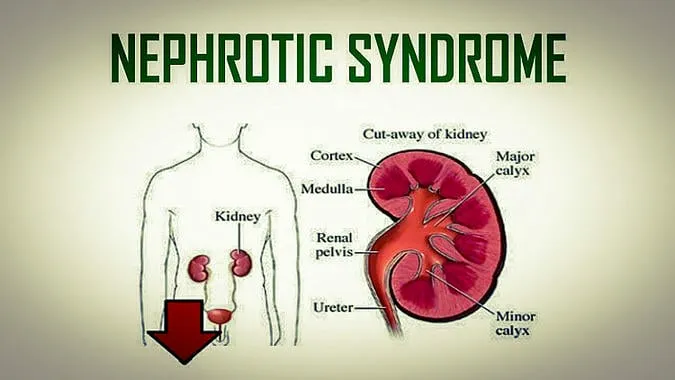
Several disorders impair kidney function by attacking and harming the microscopic filtering units inside your kidneys (also known as glomeruli). Glomerular disorders are ailments that damage the glomeruli. Minimal Change Disease (MCD) is one of these ailments. The minimal change illness causes harm to your glomeruli. The name of the disease comes from the fact that a standard microscope cannot detect the damage. Only an electron microscope, which is a highly potent microscope, can view it.
The most frequent cause of nephrotic syndrome in children is found to be minimal change illness. Although less often, it can also be found in people suffering from nephrotic syndrome. Individuals who have MCD encounter nephrotic syndrome symptoms and indications substantially more quickly than with other glomerular diseases.
The disease, in adults, is caused by another disease or drug and therefore is usually called secondary in origin. While in children, MCD is known as primary in origin or idiopathic (implying the exact cause is unknown). When you have secondary reasons for MCD, the disease may occur due to:
One may notice the following signs and symptoms in MCD:
Foamy urine or proteinuria - due to a large amount of proteins leaking into your urine.
Oedema or swelling in body parts - It is observed in your ankles and around your eyes due to fluid building up in your body.
Weight gain due to oedema - Oedema of body organs creates weight gain, and is difficult to deal with.
Nephrotic Syndrome - It is a set of symptoms that are found to occur together and are found affecting your kidney's filtering ability.
These symptoms include:
Minimal change disease can be assessed by the signs and symptoms. Your physician or healthcare provider may also suggest a few tests that would help them to understand the cause of your symptoms and find a proper treatment for you.
These tests include:
Urine test: A urine test assesses the presence of proteins and blood in your urine.
Blood test: A blood test will help you calculate the levels of protein, cholesterol, and waste in your blood.
Glomerular filtration rate (GFR): This test is of major help to the physician in the assessment of kidney functioning. Here, a test is done to know how well your kidneys are filtering the wastes from your body.
Kidney biopsy: In kidney biopsy, a tiny piece of your kidney is removed with a special needle and is observed under a microscope.
If additional symptoms, like oedema and protein in the urine, are present and a kidney biopsy reveals minimal or no damage under a routine microscope, MCD may be diagnosed. As MCD is the most frequent cause of nephrotic syndrome in children, treatment for MCD must be completed before a biopsy can be performed. The majority of folks will hear back in less time than eight weeks. Instead of calling the condition MCD, the doctors may refer to it as steroid-sensitive nephrotic syndrome if the protein in the urine stops appearing. A biopsy is performed to rule out other potential causes of the patient's symptoms if medication fails to significantly reduce them over the course of many months.
Treatment for MCD is typically simpler than for other glomerular disorders. A corticosteroid, often known as a steroid, is typically used to treat nephrotic syndrome in children with MCD. It's crucial not to abruptly terminate the course of treatment. If continuing the steroids for a long time, it should be tapered off. Your child will be less likely to relapse if you follow the entire treatment regimen (experience the signs and symptoms again).
Steroid-resistant nephrotic syndrome, or SRNS, is the name given to the condition that affects children who do not respond to conventional therapy. Several medication combinations are used in the treatment of SRNS. Children with SRNS are advised to take blood pressure medication (ACE inhibitor or ARB). These two medications lower the protein level in the urine while lowering high blood pressure.
Adults with MCD who have nephrotic syndrome are typically treated with corticosteroids, commonly known as steroids. Although an adult may take longer to respond than a youngster, you may start feeling better in a few weeks or less. Even if your symptoms disappear sooner, it is crucial to follow your treatment plan until all prescriptions have been used up.
If you're a woman who wants to start a family, you should talk to your doctor about how the medications you're taking may affect this.
According to Ayurveda, MCD is correlated with “mutra vaho sroto dushti janya kaphaj soth”, which occurs due to various nidana (means causative factors) leading to the violation of Kapha Dosha. This violation results in mutra vaha srotas dosha, i.e. it causes deformity in the vrikk (kidneys) and, consequently, affects the urine mechanism.
MCD leads to the accumulation of fluids in the body resulting in sleshmaj sotha (i.e. swelling in the subcutaneous tissue); it is caused due to disturbance of Kapha dosha. This state shows clinical features like decreased urination, sashulam (painful micturition), pain in the lower abdomen etc. All of these changes can be managed through Herbal medicine. Ayurveda, using its herbs and herbal remedies, has proved effective for all kidney-related diseases. Punarnava, Varun, and Bhumi Amla are a few herbs that have been found very effective in dealing with kidney diseases in the treatment regime of ayurvedic treatment for Nephrotic syndrome.
Second Floor, 77, Block C, Tarun Enclave, Pitampura, New Delhi, Delhi, 110034